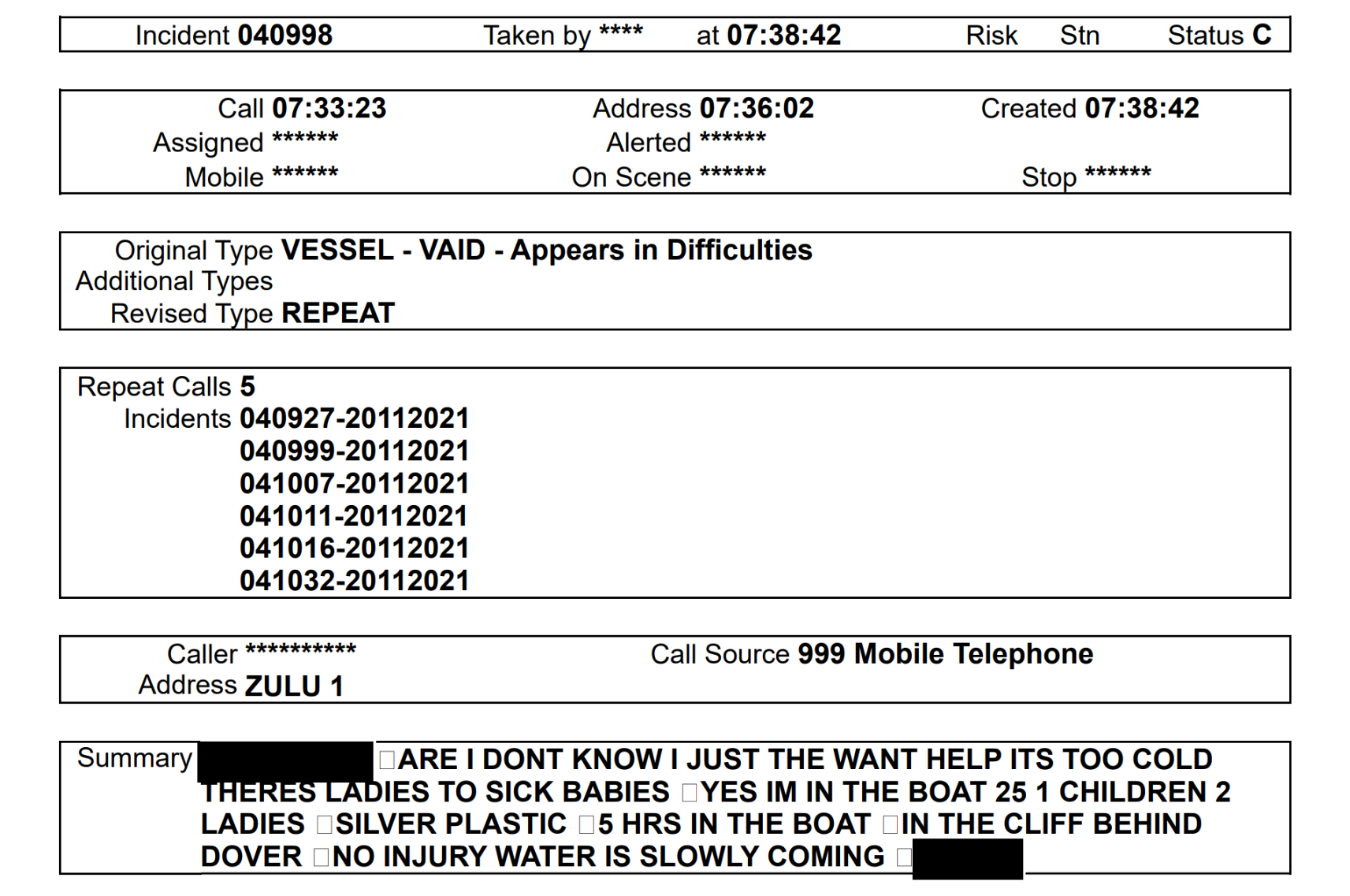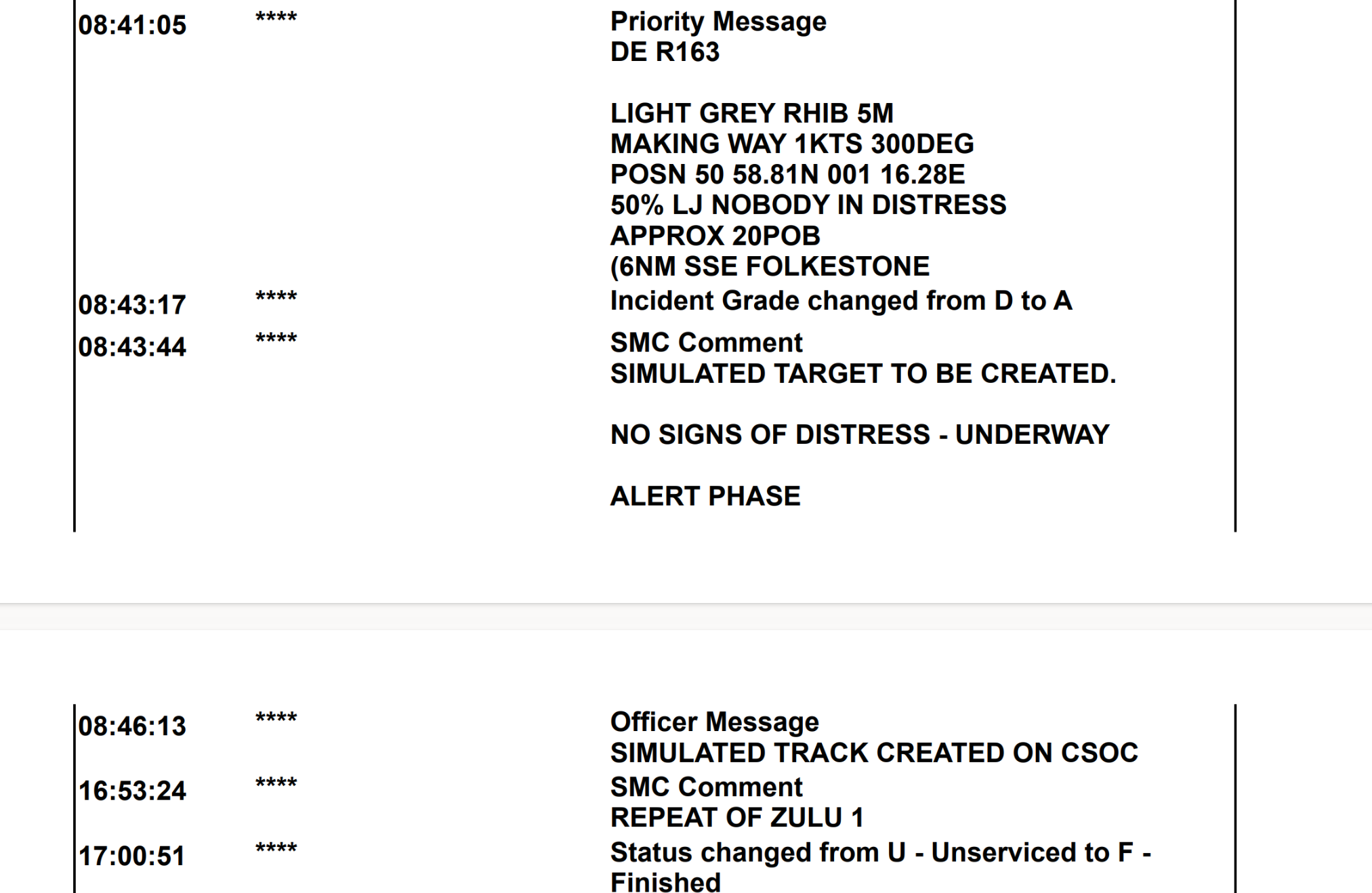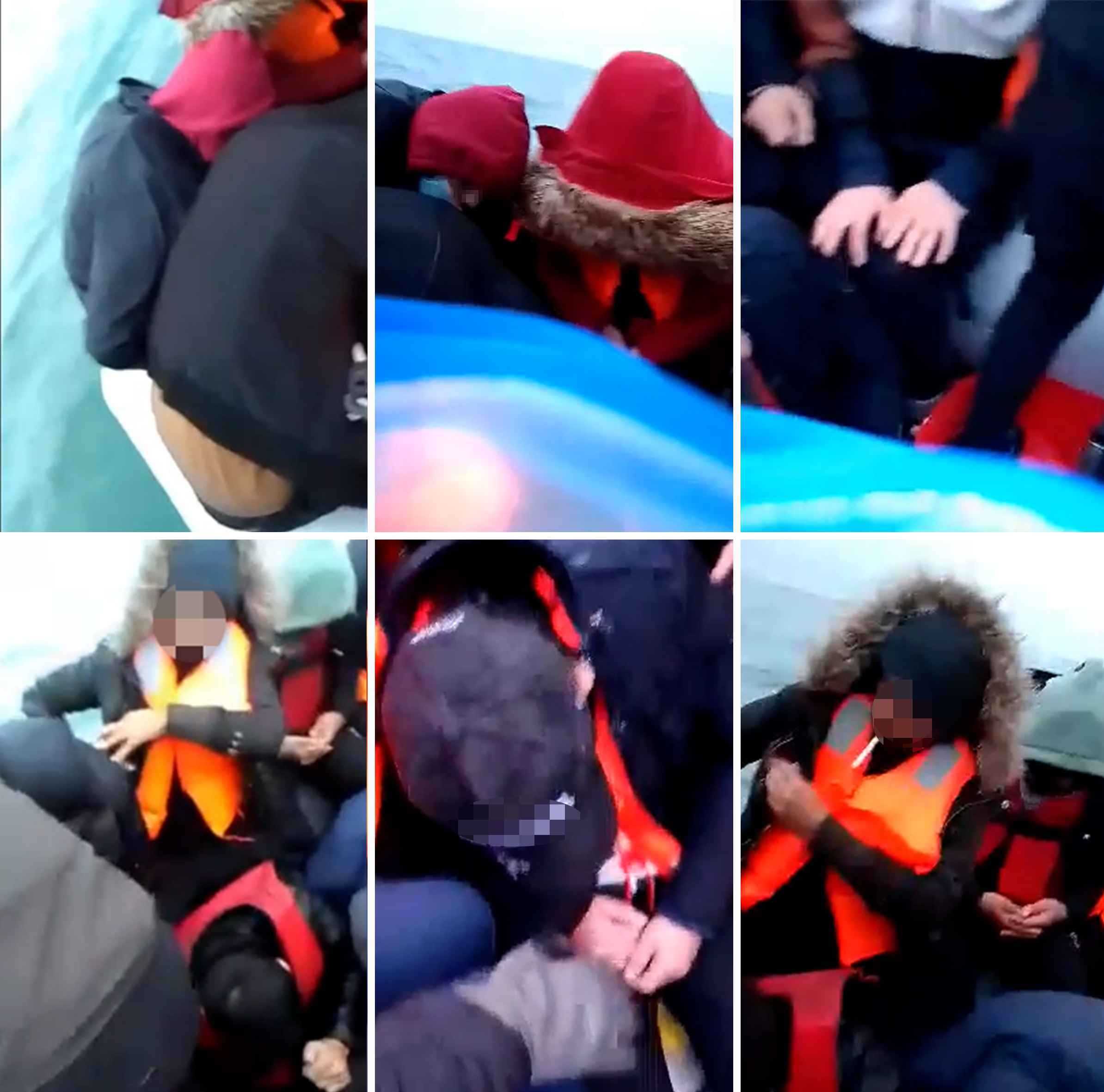Channel migrant 999 calls downgraded days before 2021 mass drowning, docs reveal
Published on 04 November 2023
People on a small boat crossing the Channel between France and UK heading towards the port of Dover. Photo: Christian Offenberg / Alamy Stock Photo

999 calls from as many as four small boats carrying 155 people across the Channel were graded not in need of urgent rescue
Reports Aaron Walawalkar, Liberty Investigates journalist; Harriet Clugston, Liberty investigates editor; and Mark Townsend, the Observer’s Home Affairs Editor.




